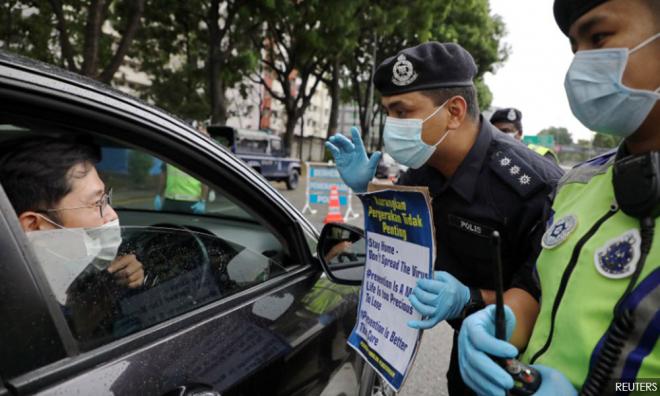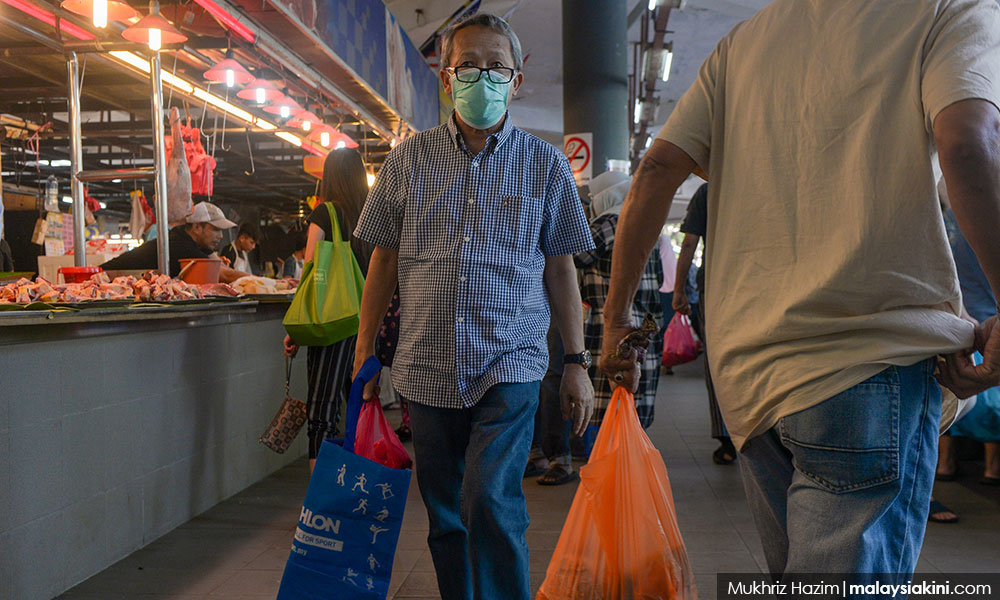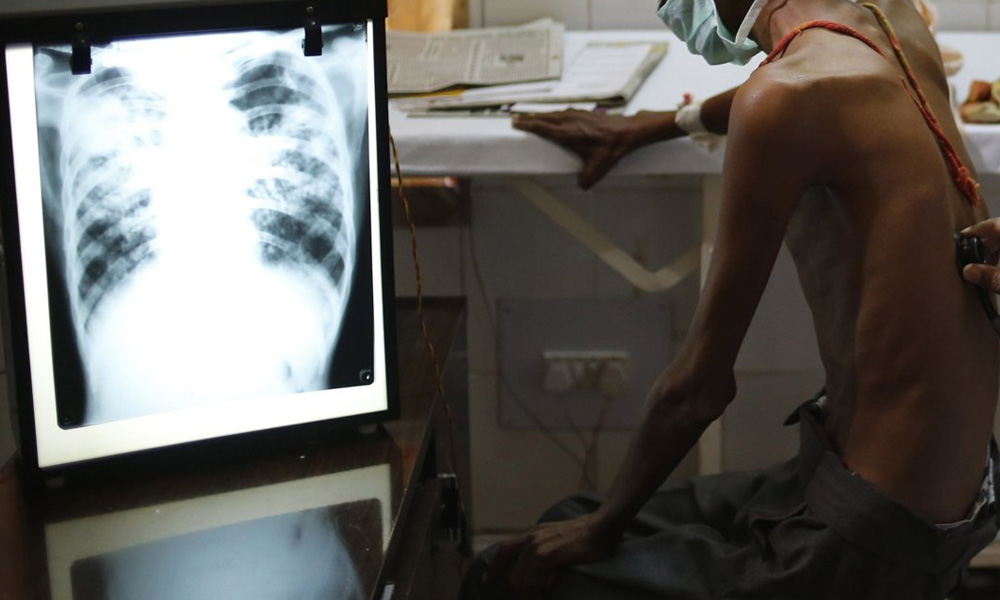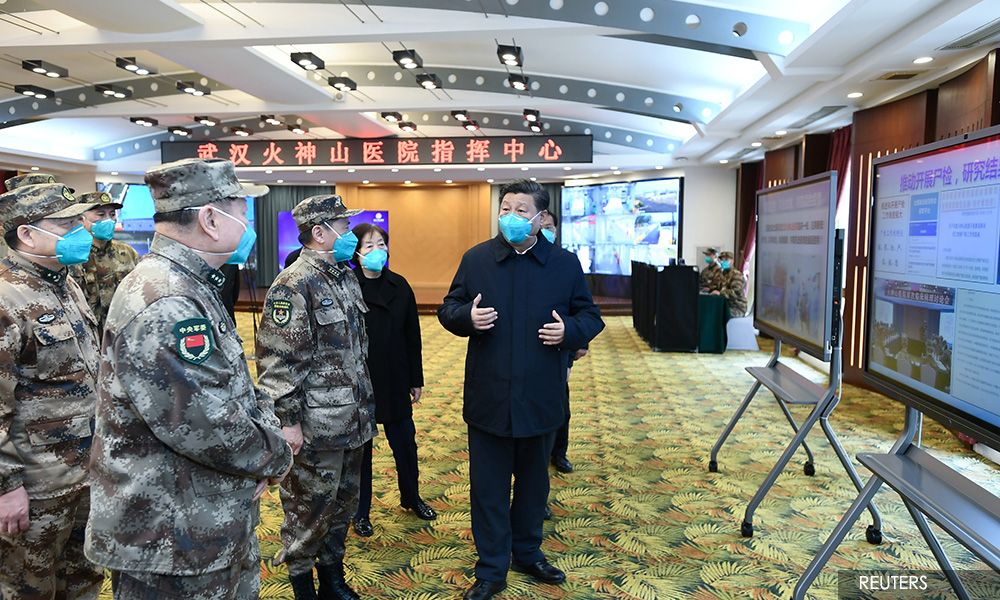
Spaniards banged their pots to protest the government’s handling of Covid-19. Italians sang patriotic songs on their balconies to lift community spirit during the lockdown. Australian "mateship" banded together during the flood and bushfires.
Malaysians own such community spirit too. But our spirit is "communal" only to the extent that it does not curb our daily comforts.
Why abide by the government directives and act for the collective welfare when others are not doing it? Is this who we really are, until Covid-19 hits us or kills our loved ones?
With Covid-19, what we do or defy affects our neighbour and the viral spread. We are in a public health crisis where many will lose when a few flout the rules.
We should be seeing stronger communal solidarity and more compassion emerging from the public health crisis. It should bring out the best in us. Instead, media reports show how we have spurned what we should be doing in a pandemic – responsive caring, adjusting to new norms, heeding the advice of the health authorities.
Yes, it is hard to locate the fulcrum that balances individual and familial priorities with the health safety of the broader community. So, what now?
Disregarding the movement control order in an epidemic with "I can do what I want" attitude is plain stupid. Blaming the government to score political points is bad timing. Community solidarity and mutual help to #DudukRumah and stay safe from Covid-19 must be stronger than our adversarial politics.
Coronavirus will have public policy implications in the following months as it tests an unelected prime minister’s leadership, the health minister’s competency, and the public hospital system, which was already breaking at the seams before the pandemic.

And, yes, the Perikatan Nasional (PN) government was unprepared for the ripple effects of the lockdown on individuals, families, communities and the local economy (PN aides should read these recommendations on managing the economy during and after this crisis).
One can expect this unsettling confusion, given that the one-month-old PN is fighting on different fronts – responding to the Covid-19 epidemic, which the public have attributed to the irresponsible holding of the tabligh; repairing its tainted image as a legitimate government for all Malaysians when it excluded Pakatan Harapan states from the National Action Council meeting on Covid-19; and jumping into bed with Umno-PAS to cull a "backdoor" government.
Reckless indifference to the government’s directives mirrors a waning faith in our scheming leaders who manipulate their power base in a politically divisive system. The complete truth of the coup on Feb 24 will be revealed one day, one way or other. For now, we need to gather as one people.
"In a time of domestic crisis, men of goodwill and generosity should be able to unite regardless of party or politics.” These words of John F Kennedy in the 60s aptly apply today.
Yes, goodwill and generosity. But what I have gathered from media reports are callous indifference to the movement control order, social distancing and staying home. Covid-19 does bring out the worst in some of us. But it also opens up a pathway for the majority of Malaysians to work with the federal and local authorities to stem the viral outbreak.
While Covid-19 news and redundant memes incessantly overload our inbox, let us remember that the Health Ministry is also facing five top infectious diseases in Malaysia - dengue fever, tuberculosis, hand, foot and mouth disease, food poisoning and viral hepatitis.
Ministry of Health figures note that every year there are 20,000 to 25,000 new tuberculosis cases in Malaysia, with an average of six deaths every day. Dengue remains the main preventable disease with 119,198 cases last year that killed 162.
As an afterthought of the 1,518 cases and 14 deaths from Covid-19 at this time of writing: road accidents kill about 7,000 to 8,000 Malaysian every year (or 19 to 22 every day), making us the third country in the world with the deadliest roads after Thailand and South Africa.
Perspectives matter. Covid-19 poses as much deadly threat to Malaysians as road accidents, tuberculosis and dengue. Treatment for coronavirus, however, is yet unknown, which fans the public fear on one side, and on the other extreme, callous indifference because "it won’t happen to me".

Covid-19 does not happen in a spiritual or moral vacuum either. Mass gatherings are banned. Social distancing has been especially hard for the elderly who only get to meet their friends at weekly services. Churches and mosques have gone online to connect with their isolated communities during the lockdown.
But across most communities, disconnection prevails. It is disheartening to see a young family’s shopping trolley spilling over with provisions while the elderly folk trundle through the aisle of empty shelves looking for their basic needs. Come on, sacrifice that pack of toilet roll. Share that carton of eggs.
We are generally self-sufficient individuals who live in gated communities. We have not met or greeted our neighbours who, like us, are secluded behind multiple-locked grilled doors and tinted windows. That elderly neighbour, the vulnerable, the children of single parents - do we even know what help they need during this lockdown?
Covid-19 could still liberate us from the loutish selfish behaviour reported in the local papers. Malaysia Boleh. #DudukRumah gives us that enforced time for quiet reflection and adjustment to the new normal.

Let us give a big shout out to the medical professionals and all the frontliners for keeping us safe until the time is right to lift the lockdown, following the experience of China and South Korea in "flattening the curve".
ERIC LOO is the founding editor of the academic journal Asia Pacific Media Educator. - Mkini



Esok lusa tidak apa laa, we tok kok sing song laa, apa takut? Janji we sembahyang and we will be safe and saved, alhamdulilah insyaalah.
ReplyDeleteWith China's disciplined people they took 3 months to control the virus, Msia will take no less than 12 months , Go figure.